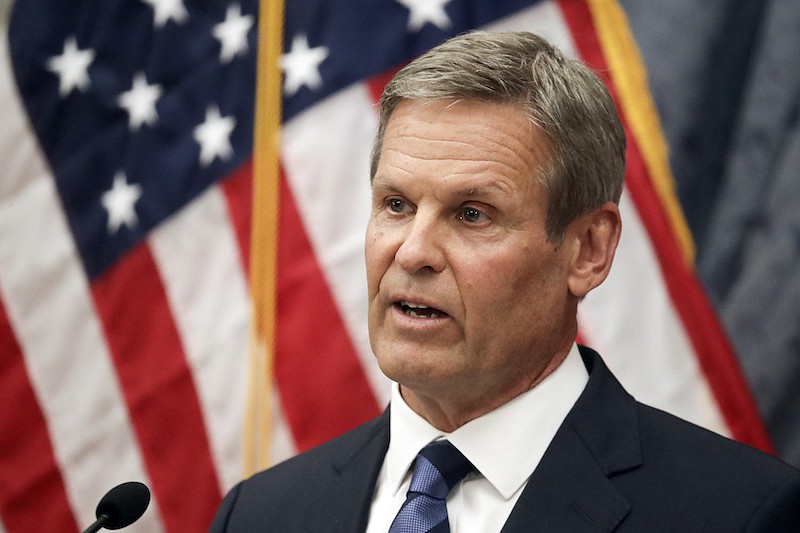NASHVILLE, Tenn. (AP) - Gov. Bill Lee announced Tuesday that the extra federal unemployment aid offered amid the COVID-19 pandemic won't be available in Tennessee starting July 3, including the end of $300 weekly additional payments.
With the decision, the Republican joins several other states - among them, Alabama, Arkansas, Idaho, Mississippi, Missouri, Montana, North Dakota and South Carolina - that are planning to stop accepting the $300 benefit. Lee is echoing arguments that job openings are going unfilled, and pointing people to job-finding resources offered in the state.
Lee's office said several other federal pandemic-times offerings will end in Tennessee as well, including eligibility for the self-employed, gig workers and part time workers; an extension of benefits once regular benefits have been exhausted; and an additional $100 for certain people with mixed earnings.
"We will no longer participate in federal pandemic unemployment programs because Tennesseans have access to more than 250,000 jobs in our state," Lee said in a news release. "Families, businesses and our economy thrive when we focus on meaningful employment and move on from short-term, federal fixes."
Asked by reporters if the 250,000 jobs pay well and offer a living wage, Lee demurred and instead said the state is doing a county-by-county analysis of the openings.
"What we found is, in fact, in many cases the job openings match with the job skills of the unemployed, and that's part of what we used to make our decision going forward," Lee said Tuesday.
While his Republican counterparts in the Legislature and some prominent business lobby groups applauded the announcement, Democrats chided the move.
(READ MORE: Georgia may cut extra jobless benefits to push more workers back into workforce)
"This is dumb. Really dumb. And cruel to boot," Senate Minority Leader Jeff Yarbro, a Nashville Democrat, said on Twitter. "This decision literally pulls money out of Tennessee's economy. It'll slow down our recovery rather than speed it up."
Labor experts say the shortage is not just about the $300 payment. Some unemployed people also have been reluctant to look for work because they fear catching the virus. Others have found new occupations rather than return to their old jobs. And many women, especially working mothers, have had to leave the workforce to care for children.
Tennessee reinstated job search requirements for unemployment in October, mandating three weekly job searches to stay eligible.
Weeks that are eligible under the federal requirements will continue to be processed if they're filed before July 3.
Tennessee, meanwhile, has continued to accept billions of dollars in other federal assistance through COVID-19 relief packages approved in Washington.
The move follows action by lawmakers to cut unemployment benefits from 26 weeks to 12 weeks - making Tennessee among the lowest in the country. Lee has not yet acted on the bill, which would make changes starting in late 2023.
Additional weeks would be added if the state's average unemployment rate rises above 5.5% for a maximum of 20 weeks should the unemployment rate reach 9%. Supporters argued the move will encourage people to become employed full-time.
Critics warn that the reduction would not help the state's unemployed. However, the benefit cap would go up to $325 per week. It was previously $275 per week.
